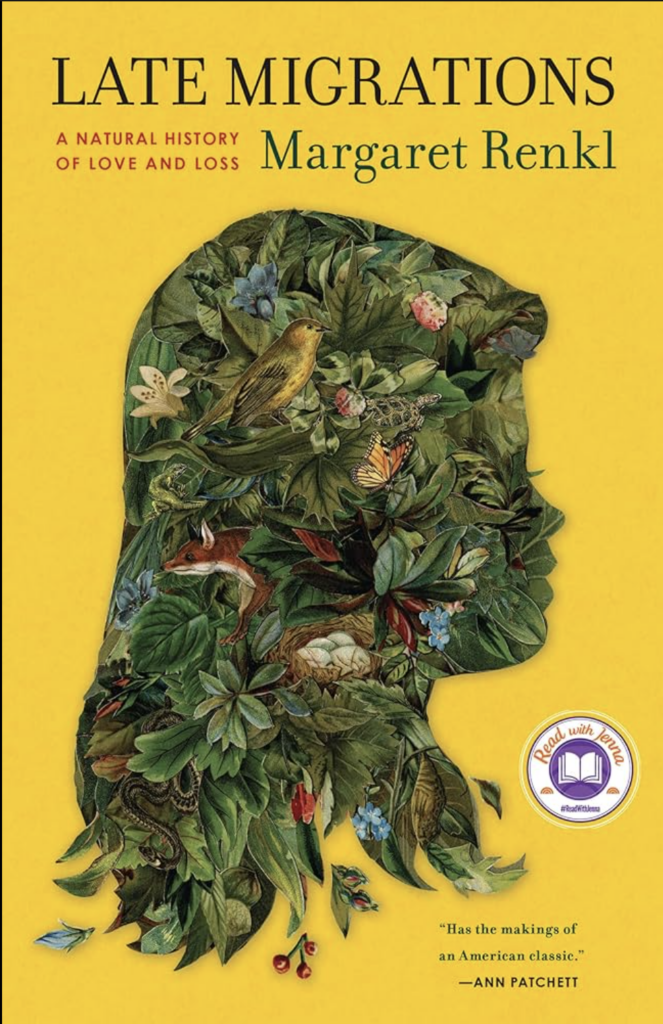(Nature/Essays, 2019)
By Caroline Woodwell
Margaret Renkl, author of “Late Migrations: A Natural History of Love and Loss,” was asked once whether she was a trained naturalist. Renkl admitted that she was not, she was more of a Googler. But, she said, “I am good at astonishment.”
This book of essays, illustrated by her brother Billy, is a surprising and beautiful look at the cycles of life and death in Renkl’s own backyard, in her community, and in her family. With essays dedicated to the behavioral patterns of backyard wildlife and essays about love and loss in her own family, Renkl weaves a story that, over and over, finds universal meaning in small, exquisite moments. She does it by allowing herself to be astonished.

It’s the lone vulture in her front yard on the day her youngest son’s selective service notice arrives in the mail, for example. “I know a vulture is only a bird, only a bird and not an omen . . . ” she writes. And yet by the end of the essay, maybe it is an omen, and that “maybe,” so gently, so obliquely laid on the page, is the beauty of the essay.
Every one of her nature essays benefits from a Googler’s attention to precision and detail. And every family essay benefits from Renkl’s ability to be as astonished, curious and compassionate about human nature as she is about the nature of plants and wildlife around her.
Renkl, who writes a weekly column on nature and politics for the New York Times, is a deceptively simple writer about a deceptively challenging topic: love and loss, life and death. Her clear summations of the sometimes-paradoxical lessons inspire her reader to recognize that astonishment is available to all of us in our own backyards, in our communities, and in our own families.













